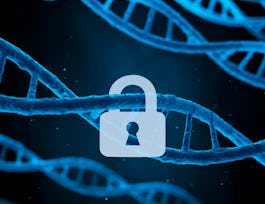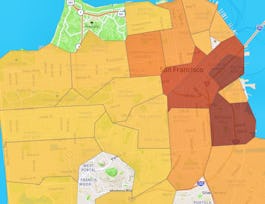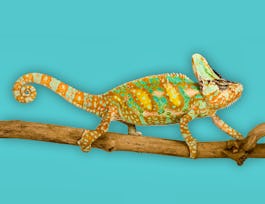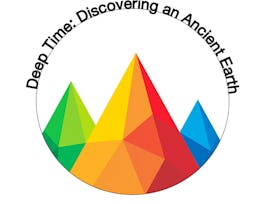In this course you will learn how evolution works. You will develop an understanding of evolutionary processes and their formative power. You will see how evolution has shaped biodiversity, and continuously influences our daily life. Evolution impacts human endeavors as varied as medicine, agriculture, psychology, economy, and culture. It is the major unifying principle for biology and a fundamental natural law. In five weeks we will make evolution accessible for you and help you to recognize evolutionary processes around you, in nature as well as in society. We make use of the unique collection of Naturalis, the natural history museum in Leiden, but also take you to the field. Using classical and up-to-date examples, we will show you how scientists address evolutionary questions. In the last module, we will have a look at the future. How will humans evolve? And how do we influence our own evolution and that of other organisms?


Evolution Today
Taught in English
Some content may not be translated
9,747 already enrolled
(165 reviews)
Details to know

Add to your LinkedIn profile
23 quizzes
See how employees at top companies are mastering in-demand skills


Earn a career certificate
Add this credential to your LinkedIn profile, resume, or CV
Share it on social media and in your performance review

There are 6 modules in this course
Great that you are joining us! In this course you will learn about Evolution. Before you start with this course we invite you to first take a look around and meet your fellow learners. We would like to know what brings you here and what you would like to get out of the course. If you encounter any difficulties while studying, please let us know in the forum. For technical difficulties or questions regarding the course certificate, you can always contact the Coursera Learner Helpdesk. Good luck & we hope you will enjoy studying in this course!
What's included
1 video4 readings2 discussion prompts1 plugin
In this module, you are going to learn that a very powerful mechanism, natural selection, leads to evolutionary change. We are going to have a detailed look at what is required for this natural selection. And, knowing these conditions, we can judge whether traits in humans are evolving at the moment. This is a surprisingly simple module. I am looking forward to discuss human evolution with you at the end!
What's included
5 videos5 readings5 quizzes4 discussion prompts
This is a real puzzle-module. We are going to decipher the language of DNA, and see that mutations in this DNA lead to new variation. As we saw, variation is the raw material for natural selection. Thus, take your pen and pencil and unravel with me the code of your own DNA!
What's included
5 videos2 readings4 quizzes
In the first two modules, we have asked ourselves whether we experience evolutionary change, and if so, how this change comes about. In this module, we will explore who this "we" is anyway: is it us, the individual? Is it our species? Our genes? Who is in charge here?
What's included
6 videos5 readings6 quizzes
In this module, we will take a look at the limitations to evolution. Despite the strength of the process of natural selection, some things simply are not possible. Evolution has to play by the rules, and this module will explore what those rules are.
What's included
4 videos1 reading3 quizzes1 peer review3 discussion prompts
In this module, we will have a look at the future. How will humans evolve, and, as our impact on the world increases, how will we affect the evolution of other organisms?
What's included
5 videos4 readings5 quizzes1 peer review3 discussion prompts
Instructors



Recommended if you're interested in Basic Science

Universiteit Leiden

University of Illinois at Urbana-Champaign

American Museum of Natural History

University of Colorado Boulder
Why people choose Coursera for their career




Learner reviews
Showing 3 of 165
165 reviews
- 5 stars
69.27%
- 4 stars
23.49%
- 3 stars
4.21%
- 2 stars
0.60%
- 1 star
2.40%
New to Basic Science? Start here.

Open new doors with Coursera Plus
Unlimited access to 7,000+ world-class courses, hands-on projects, and job-ready certificate programs - all included in your subscription
Advance your career with an online degree
Earn a degree from world-class universities - 100% online
Join over 3,400 global companies that choose Coursera for Business
Upskill your employees to excel in the digital economy
Frequently asked questions
Access to lectures and assignments depends on your type of enrollment. If you take a course in audit mode, you will be able to see most course materials for free. To access graded assignments and to earn a Certificate, you will need to purchase the Certificate experience, during or after your audit. If you don't see the audit option:
The course may not offer an audit option. You can try a Free Trial instead, or apply for Financial Aid.
The course may offer 'Full Course, No Certificate' instead. This option lets you see all course materials, submit required assessments, and get a final grade. This also means that you will not be able to purchase a Certificate experience.
When you purchase a Certificate you get access to all course materials, including graded assignments. Upon completing the course, your electronic Certificate will be added to your Accomplishments page - from there, you can print your Certificate or add it to your LinkedIn profile. If you only want to read and view the course content, you can audit the course for free.
You will be eligible for a full refund until two weeks after your payment date, or (for courses that have just launched) until two weeks after the first session of the course begins, whichever is later. You cannot receive a refund once you’ve earned a Course Certificate, even if you complete the course within the two-week refund period. See our full refund policy.



